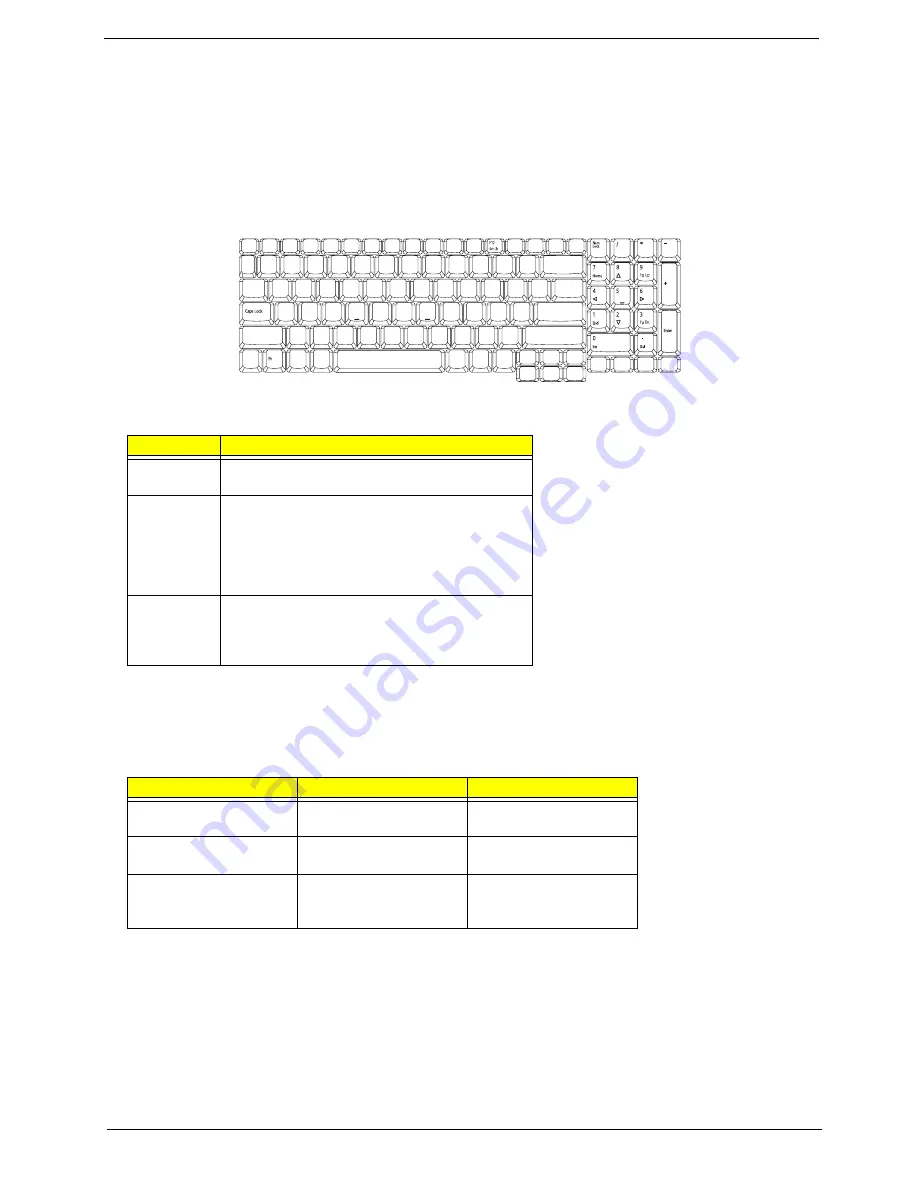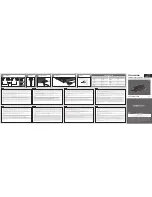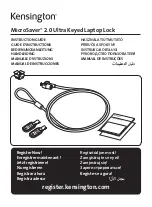
Chapter 1
15
Using the Keyboard
The keyboard has full-sized keys and an embedded keypad, separate cursor keys, two Windows keys and
twelve function keys.
Lock Keys and embedded numeric keypad
The keyboard has three lock keys which you can toggle on and off.
The embedded numeric keypad functions like a desktop numeric keypad. It is indicated by small characters
located on the upper right corner of the keycaps. To simplify the keyboard legend, cursor-control key symbols
are not printed on the keys.
Windows Keys
The keyboard has two keys that perform Windows-specific functions.
Lock Key
Description
Caps Lock
When Caps Lock is on, all alphabetic characters typed
are in uppercase.
Num lock
<Fn>+<F11>
When Num Lock is on, the embedded keypad is in
numeric mode. The keys function as a calculator
(complete with the arithmetic ope, -, *, and /).
Use this mode when you need to do a lot of numeric
data entry. A better solution would be to connect an
external keypad.
Scroll lock
<Fn>+<F12>
When Scroll Lock is on, the screen moves one line up
or down when you press the up or down arrow keys
respectively. Scroll Lock does not work with some
applications.
Desired Access
Num Lock On
Num Lock Off
Number keys on embedded
keypad
Type numbers in a normal
manner.
Cursor-control keys on
embedded keypad
Hold <Shift> while using
cursor-control keys.
Hold <Fn> while using
cursor-control keys.
Main keyboard keys
Hold <Fn> while typing
letters on embedded
keypad.
Type the letters in a normal
manner.
y
y
y
gg
Lock key
Description
<Fn> + <F11>
<Fn> + <F12>
Desired access
Num Lock on
Num Lock off
<Shift> <Fn>
<Fn>
















































